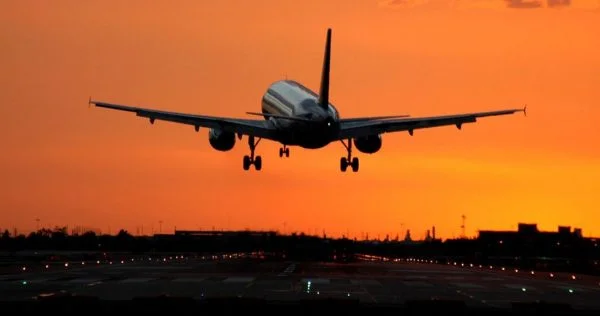Despite the rise in international travel options and competition in global aviation, Nigerian travelers continue to face one of the most perplexing and frustrating forms of pricing injustice.
Consider these facts:
A 12-hour flight from London to Los Angeles on British Airways costs approximately £550.
A 6-hour flight from London to Accra costs around £600.
A similar 6-hour flight from London to Lagos costs an alarming £890.
These disparities are not due to distance, fuel, or service quality—they are the result of what many now see as blatant price discrimination, primarily affecting Nigerian travellers.
This raises serious concerns: Why is flying to Nigeria so expensive? What is the government doing about it? And what can the Nigerian public do in response?
The Roots of the Price Disparity
1. Market Exploitation and Limited Competition
The London–Lagos route remains one of the busiest in Africa, especially during festive seasons. Yet, foreign carriers like British Airways and Virgin Atlantic have long dominated this route with minimal competition. While Nigeria’s own Air Peace has launched international routes, it is still gaining ground and must contend with regulatory hurdles, limited route access, and perceptions around service and reliability.
2. Perceived Willingness to Pay
International airlines often set fares not based purely on cost or distance but on what a market is perceived to tolerate. For many in the Nigerian diaspora, returning home is non-negotiable—often tied to major life events, family commitments, and cultural celebrations. Unfortunately, this emotional connection is being exploited, turning loyal travellers into premium-priced customers.
3. Weak Consumer Protection and Regulatory Oversight
Unlike the more structured aviation regulatory systems in Europe and North America, Nigeria lacks effective enforcement mechanisms to monitor or control international airfare pricing. As a result, foreign airlines face little accountability and can inflate prices without consequences.
Also Read
- AAAN kicks off 52nd congress with bold call to reclaim industry pride
- Flood: Niger urges riverine communities to relocate
- Alia’s infrastructure revolution turning state into modern landscape, by Evelyn Soorkwagh
- Buhari: Cabal members knew his weak moments, smuggled memos to him – Gambari
- Court dismisses motion to stop National Assembly from approving Rivers budgets, appointments
4. Operational and Government-Related Costs
Airlines sometimes cite high airport charges, government levies, and poor aviation infrastructure as reasons for higher ticket costs to Nigeria. While this may hold some truth, it does not justify the wide pricing gap when compared to other African and international destinations with similar logistical challenges.
What Can Nigerians Do?
Support Indigenous Airlines
To break foreign dominance, Nigerians must actively support local carriers like Air Peace. Although these airlines must continue to improve safety, service quality, and consistency, public patronage is essential for them to grow and compete globally.
Demand Government Intervention
Nigerians at home and abroad must pressure the Ministry of Aviation, the Nigerian Civil Aviation Authority (NCAA), and other relevant agencies to:
Conduct thorough audits of international ticket pricing.
Renegotiate Bilateral Air Services Agreements (BASAs) in favour of Nigerian consumers.
Reduce excessive charges that discourage competitive pricing.
Engage in Public Advocacy
Civil society groups, social media influencers, and diaspora organizations must keep this issue in the public eye. Public awareness and coordinated campaigns can pressure both foreign airlines and government regulators to act fairly.
Push for Legislative Aviation Reforms
Nigeria needs to strengthen its aviation laws to protect consumers, ensure fare transparency, and hold carriers accountable for exploitative practices.
Are We Supposed to Keep Quiet?
No, we are not.
Silence enables continued exploitation. Every overpriced ticket bought without protest reinforces the message that Nigerians will pay anything. This is not just about airfare—it is about how Africans are perceived and treated in the global economy.
As long as this pricing injustice continues, it sends a clear message: African markets are for profit, not for partnership.
We must speak up—for fairness, for dignity, and for future generations.
Conclusion
The high cost of flying to Nigeria is neither just nor sustainable. While the government must take responsibility for enabling a competitive, fair aviation environment, the Nigerian people—at home and abroad—must rise in unity to challenge this systemic discrimination. Only then can we hope for skies that are truly open, fair, and welcoming to all.
©️ IDT




